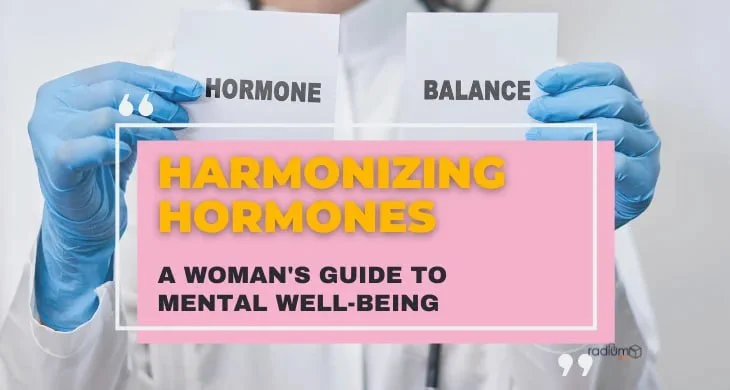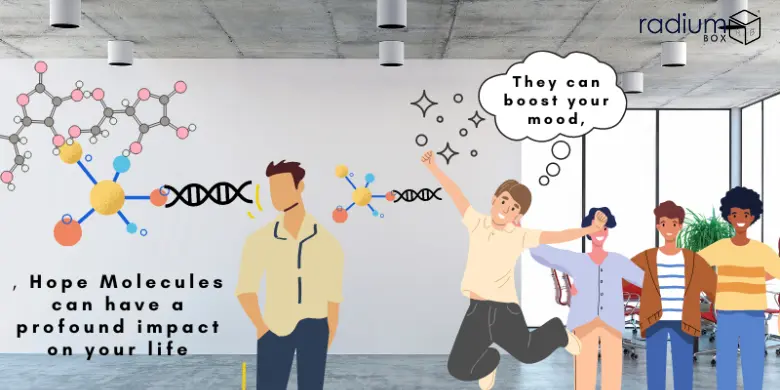As we journey through life, our bodies experience profound transformations driven by the intricate interplay of hormones. These powerful chemical signals not only govern our physical well-being but also exert a profound impact on our emotional state. From the tumultuous teenage years marked by hormonal fluctuations to the transformative phases of pregnancy, postpartum, and menopause, our mental health is intricately intertwined with the ebb and flow of hormonal changes. Understanding the role of hormones in shaping our emotional landscape empowers us to navigate the complexities of womanhood with resilience and grace.
Embracing Hormonal Changes
- Adolescence
Adolescence heralds a time of immense change, where the body undergoes significant physical and emotional development. With the onset of puberty, hormonal shifts become pronounced, often leading to mood swings and emotional upheaval. This period, marked by the activation of the hypothalamic-pituitary-gonadal (HPG) axis, signifies the body’s preparation for its first menstrual cycle, accompanied by heightened levels of estrogen and progesterone. Amidst these physiological changes, teenagers may grapple with mood disorders like depression and anxiety, exacerbated by the interplay between the HPG axis and the hypothalamic-pituitary-adrenal (HPA) axis, responsible for stress regulation. Thus, adolescence emerges as a pivotal juncture for mental and emotional growth, where understanding and support play crucial roles in fostering resilience. By acknowledging the complexities of hormonal fluctuations and providing compassionate care, we can empower teenagers to navigate this transformative phase with confidence and self-awareness.
- The Monthly Menstrual Cycle
The menstrual cycle serves as a recurring signal of the intricate hormonal dynamics within our bodies, exerting a profound influence on our mental well-being. As estrogen and progesterone levels ebb and flow throughout the cycle, women may experience shifts in mood and emotional state. These hormonal fluctuations can give rise to conditions such as premenstrual syndrome (PMS) or its severe form, premenstrual dysphoric disorder (PMDD), characterized by a range of emotional and physical symptoms. By gaining insight into these hormonal changes and their impact on mental health, women can adopt proactive strategies to manage their well-being effectively. Cultivating self-awareness and embracing self-care practices tailored to different phases of the menstrual cycle empower women to navigate these hormonal shifts with greater ease and resilience. Through understanding and acceptance of their body’s natural rhythm, women can reclaim agency over their mental and emotional health, fostering a sense of empowerment and holistic well-being.
- Pregnancy and Postpartum
Pregnancy heralds a surge of hormonal activity within the body, orchestrating a myriad of physical transformations and emotional shifts. Throughout this transformative journey, women experience fluctuations in hormones such as estrogen and progesterone, influencing their emotional well-being. Following childbirth, the abrupt decline in hormone levels, coupled with the demands of caring for a newborn, can render women vulnerable to postpartum depression—a condition affecting approximately one in seven women. This delicate phase underscores the importance of fostering supportive environments and encouraging open dialogue surrounding maternal mental health.We can break down the stigmas related to postpartum depression and provide essential tools and support to those who require them by establishing environments where women feel heard, understood, and encouraged. Nurturing a culture of compassion and empathy within communities and healthcare systems can facilitate early detection and intervention, ensuring that women receive the care and support necessary to navigate the challenges of the postpartum period with resilience and strength.
- Menopause
As women enter menopause, their bodies undergo significant hormonal changes, resulting in a spectrum of symptoms like hot flashes and mood fluctuations. By recognizing and comprehending these physiological shifts, women can cultivate resilience and self-compassion, enabling them to navigate the menopausal journey with grace and acceptance. Embracing this transformative phase with openness and understanding allows women to honor the natural progression of their bodies and embrace the wisdom that accompanies this stage of life. Rather than viewing menopause as a period of decline, women can approach it as an opportunity for personal growth and self-discovery. By prioritizing self-care practices and seeking support from healthcare providers and loved ones, women can embark on this journey with confidence and empowerment. Embracing the challenges and triumphs of menopause as integral parts of the female experience fosters a sense of unity and solidarity among women, reinforcing the importance of mutual support and understanding throughout life’s transitions.
Stress Hormones: The Impact on Hormonal Balance
Chronic stress has a profound impact on our bodies, disrupting the delicate balance of hormones and affecting our stress response, sex hormones, and mental health. When we experience stress, our bodies activate the hypothalamic-pituitary-adrenal (HPA) axis, triggering the release of stress hormones like cortisol. Over time, prolonged stress can lead to dysregulation of the HPA axis, causing imbalances in hormone levels and exacerbating mental health issues such as anxiety and depression.
To mitigate the effects of chronic stress on hormonal balance and mental well-being, it is crucial to adopt stress management strategies. Deep breathing exercises and other mindful habits can help relax the mind and reduce anxiety levels. Engaging in regular physical activity, such as yoga or walking, promotes the release of endorphins, which are natural mood lifters and stress reducers. Additionally, prioritizing nourishing practices, such as a balanced diet and adequate sleep, supports overall health and resilience in the face of stressors.
By incorporating these mindful and nourishing practices into our daily lives, we can effectively manage stress, preserve hormonal equilibrium, and safeguard our mental well-being. Taking proactive steps to reduce stress not only benefits our immediate health but also contributes to long-term resilience and vitality.
Cultivating Self-Compassion and Understanding
By embracing the natural fluctuations of our hormonal journey, we forge a profound connection with ourselves and our bodies. This journey through womanhood is marked by a tapestry of experiences, from the exhilarating highs to the challenging lows. By acknowledging and accepting the complexities of this journey, we cultivate strength, resilience, and compassion within ourselves.
Each phase of womanhood offers its own unique set of challenges and opportunities for growth. From the tumultuous teenage years marked by hormonal upheaval to the transformative transitions of pregnancy, postpartum, and menopause, our bodies undergo remarkable changes that shape our physical and emotional landscapes.
Navigating these transitions requires patience, self-awareness, and self-care. By tuning into our bodies’ signals and honoring our needs, we can navigate life’s twists and turns with grace and dignity. Whether it’s seeking support during times of hormonal imbalance or embracing the wisdom that comes with age and experience, each phase of womanhood offers valuable lessons and insights.
Ultimately, we cultivate a deeper sense of self-awareness and empowerment. We learn to trust our bodies, honor our intuition, and embrace the inherent beauty of our ever-evolving selves. In doing so, we unlock the potential for growth, healing, and transformation, allowing us to navigate life’s journey with authenticity and grace.
Conclusion
As we journey through womanhood, we encounter a rich tapestry of hormonal fluctuations, each phase presenting unique opportunities for personal growth and self-exploration. By gaining insight into the intricate relationship between hormones and mental health, we equip ourselves with the knowledge to foster holistic well-being. This understanding enables us to navigate the ups and downs of our hormonal journey with grace and resilience, embracing the inherent beauty of our ever-evolving selves. Through self-awareness and self-care practices, we cultivate a deeper connection with our bodies and minds, empowering ourselves to lead fulfilling and balanced lives.
FAQs
Ques. How can I manage mood swings during my menstrual cycle?
Ans. Tracking your cycle, practicing self-care, and seeking support from loved ones can help mitigate mood fluctuations.
Ques. What are some effective stress-management strategies?
Ans. Engaging in mindfulness practices, regular exercise, and nourishing self-care rituals can help alleviate stress and support hormonal balance.
Ques. How can I support a friend experiencing postpartum depression?
Ans. Offering non-judgmental support, actively listening, and encouraging professional help are vital in supporting a friend through postpartum depression.
Ques. Can hormonal imbalances affect fertility?
Ans. Yes, hormonal imbalances can impact fertility by disrupting ovulation and menstrual cycles. Consulting with a healthcare provider is essential for addressing fertility concerns.
Ques. How can I incorporate self-care into my daily routine to support hormonal health?
Ans. Prioritizing rest, engaging in activities that bring joy, and nourishing your body with nutrient-rich foods can promote hormonal balance and overall well-being.




